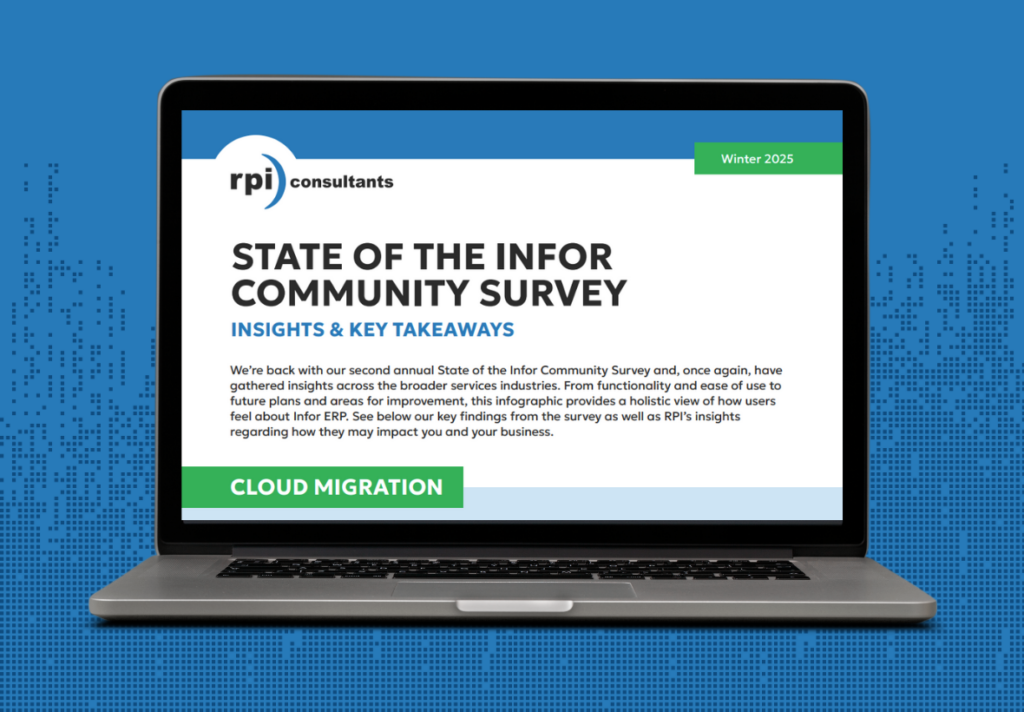It’s no secret that in recent years, pay equity has become an increasing focal point for organizations. Demands for companies to offer fair and competitive salaries, and to be transparent about them, are increasing, as are penalties for non-compliance.
In 2024, women earn roughly 84 cents for every dollar that a man earns, according to Forbes, which is a stark reminder that gender equality still has a ways to go.
In fact, according to Pew Research, the gender wage gap has barely closed in the U.S. over the past two decades.
To help ensure equitable pay for all workers, regardless of their gender, race/ethnicity, age, and level of ability, states (and cities) are passing laws that require organizations to disclose salary information to job applicants either upon request or in job announcements.
These pay transparency laws require businesses to review budgets internally and to value the jobs before considering a candidate to fill the role.
In this post, we’ll look at the states that have introduced this legislation, their unique requirements, and the penalties for failing to comply.
We’ll also discuss solutions for ensuring your business satisfies the pay transparency requirements in job listings, as they continue to take hold across the U.S. and abroad.
Pay Transparency Laws by State
Here’s a quick look at the ten states that have passed pay transparency laws, and any related penalties associated with non-compliance.
California: First introduced in 2022, Senate Bill 1162 took effect in 2023. It requires that employers disclose salary ranges in all job postings and must share a position’s salary range to current employees on request. The law also prevents employers from asking a job applicant about their salary history.
With remote work on the rise, California’s SB 1162 is far-reaching. Its requirements apply to employers who have at least 15 employees (with at least one working in California). Civil penalties range between $100 and $10,000 per violation.
Colorado: The Centennial state’s Equal Pay for Equal Work Act was enacted in 2021 and updated in 2023 to clarify existing requirements and add new ones. It now requires all employers to post, advertise, and notify all employees of all job opportunities.
Employers must also disclose, in all job listings, pay scales, job descriptions, and the date the application window closes. This law applies to all employers with at least one employee in Colorado; fines for violation range between $500 and $10,000 each.
Connecticut: Public Act 21-30 took effect in 2021. As a result, employers must disclose the salary range a) at an applicant’s request, or b) before or when making an offer of compensation, whichever comes first.
Employers must also disclose salary information to their current employees at their request; and they may not ask about an applicant’s pay history. An employee or job applicant can bring a civil action within two years of the violation.
Hawaii: Effective 2024, Senate Bill 1057 requires employers in Hawaii to include a salary/hourly wage rate in job postings that reflects what they expect to pay.
The law applies to employers with at least 50 employees (but not to public employees under a collective bargaining agreement, or to internal transfers or promotions). Those accused of violating the law can face civil action for compensatory and punitive damages, plus costs.
Illinois: Effective in 2025, House Bill 3129 amends Illinois’ existing Equal Pay Act. Employers must include the wage scale they reasonably expect to pay, plus a general description of any benefits included in total compensation.
The new law covers positions physically performed in Illinois and when a remote employee reports to a supervisor, office, or work site in Illinois. It applies to employers with at least 15 employees; fines range between $500 and $10,000 per violation.
Maryland: Maryland’s Equal Pay For Equal Work law, effective 2020, requires all employers engaged in state business to disclose job applications with the pay range for the job positions their applying for, if requested. Failing to comply can result in fines up to $600 per violation.
Maryland also has a pending bill working its way through the state legislature. If it passes, Senate Bill 525 would require salary ranges in job listings. Under SB 525, an affected employee or applicant may bring an action against an employer to recover up to $10,000 or actual damages, whichever is greater, plus attorney fees.
Nevada: The Silver state’s Senate Bill 293 took effect in 2021. Now, employers must provide salary information to job applicants for any role they interview for.
Current employees must also be provided with salary information if they request it when seeking a promotion or internal transfer, and if one of the following applies: they a) applied for the new position; b) interviewed for the new position, or c) received an offer for the new position.
New York: According to the Pay Transparency Law [New York State Labor Law Section 194-b], which took effect 2023, employers must disclose salary ranges for positions that can or will be performed in New York, or will report to a supervisor, office, or work site in New York.
The law applies to all private New York employers with four or more employees. Violators can expect fines up to $1,000 for the first violation, up to $2,000 for the second, and up to $3,000 for the third and subsequent violations.
Rhode Island: Effective in 2023, the Salary Transparency Law amended Rhode Island’s existing Equal Pay Law. Employers must disclose salary ranges if requested, and (for applicants) before discussing an offer of compensation, or (for employees) at time of hire or before they move to a new position.
Employers are also prohibited from asking about an applicant’s wage history. The law applies to employers with at least one employee in Rhode Island; fines range between $1,000 and $5,000.
Washington state: According to RCW 49.58.110, which took effect in 2023, all job postings must include salary information, including benefits and bonuses. Employers must disclose salary ranges for internal job transfers and promotions on request.
The law applies to employers with 15 or more employees who engage in business in Washington, or recruit for jobs that could be filled by Washington-based employees. Violators may be ordered to pay damages to employees, plus fines of up to $1,000.
Additional Pay Transparency Requirements
States are not the only governing bodies introducing pay transparency requirements; local jurisdictions are as well. Here are just two examples:
New York City: The Big Apple’s Salary Transparency Law took effect in 2022, and requires employers to include salary ranges in job postings for positions that can or will be performed in NYC (including remote positions).
The law applies to employers with four or more employees where at least one of them is in New York City. There’s no penalty for a first violation if it’s corrected within 30 days; otherwise, fines of up to $250,000 can be incurred.
Cincinnati, OH: The Queen city’s Code of Ordinances includes Chapter 804, effective 2020. It requires employers to disclose salary ranges to job applicants a) after extending them a job offer or b) if the applicant requests it. Employers can’t ask about the salary history of an applicant for employment.
The law applies to employers with 15 or more employees in Cincinnati; job applicants have up to two years to take legal action against employers who violate it.
How Infor HR Talent Applications Can Help
With the above pay transparency laws taking effect nationwide at a rapid rate and more on the way, HR and compensation professionals have their work cut out for them with regard to remaining in compliance. Fortunately, there are solutions—and experts—that can help.
Infor Global Human Resources (GHR) can help your company remain in compliance, with the tools you need to plan and award budgets for salaries and bonuses. It also combines compensation and performance data to reduce exposure and limit unwanted legal challenges.
Savvy organizations are implementing Infor GHR with a proven technology partner, such as RPI Consultants.
The Salary Structures functionality makes it easier to identify where your employees fall within salary ranges by gender and age; plus, you can create additional employee factors using the Configuration Console.
This functionality also allows you to set up salary ranges at the job level (broader) and/or the position level (more specific), so reorganizing salary and job structures is far less resource intensive.
Infor GHR also simplifies reporting time and attendance, allowing you to create custom business classes and user groups. You can even use employee time collection data to determine which time code, pay code, and pay rules apply.
Manage Pay Transparency Requirements with Talent Acquisition
Infor’s Talent Acquisition (TA) module can help as well. Here’s how:
Integration with compliance features: Use Infor’s Talent Acquisition module to automatically append pay ranges to job listings.
This integration saves you valuable time, and helps your organization avoid costly penalties, by ensuring that job postings meet the requirements of state pay transparency laws.
Customizable templates: TA offers customizable templates for job listings, which allows your company to include pay ranges in accordance with specific state regulations.
This functionality also enables your organization to adapt job postings to comply with legal requirements across various state and local jurisdictions.
Compensation management: TA’s Compensation Management solution provides the tools to help you plan and award budgets for salary, bonuses, and equity.
You can easily automate pay plans and awards, tie pay to individual contributions, as well as manage salary structures and grade step progressions to ensure pay equity and manage payroll costs.
Reporting and audit trail: TA makes it easy to incorporate rule adherence and reporting for regulatory compliance. The module provides reporting capabilities and maintains an audit trail of pay range disclosures in job listings.
You can easily pull reporting on gender with ethnicity, which will help your organization demonstrate compliance during audits or investigations by regulatory authorities.
Overall, Infor’s Talent Acquisition module offers tools and features that streamline the process of appending pay ranges to job listings, helping organizations effectively comply with state pay transparency laws.
By automating this aspect of compliance, businesses can focus on attracting top talent while mitigating the legal risks associated with non-compliance.
One more thing to note: job listings with salary ranges have about a 30% higher click and apply rate than listings without.
Get Help with Pay Transparency Requirements
RPI can help organizations like yours implement, set up, and tailor Infor HR talent applications to assist with state pay transparency requirements.
We can also help you configure the application to assist with reviews of compensation, job architecture, salary ranges, job codes, and more.
This is all time-consuming work, and compliance is mandatory as of the effective date in each state and city discussed above, with more jurisdictions to come in the future. Let us do the heavy lifting for you, so your organization can focus on its business.
With over 25 years of experience helping organizations implement and optimize ERP applications, we can help you navigate the pay transparency landscape with ease. To learn more about our Infor HCM services, contact us below.



